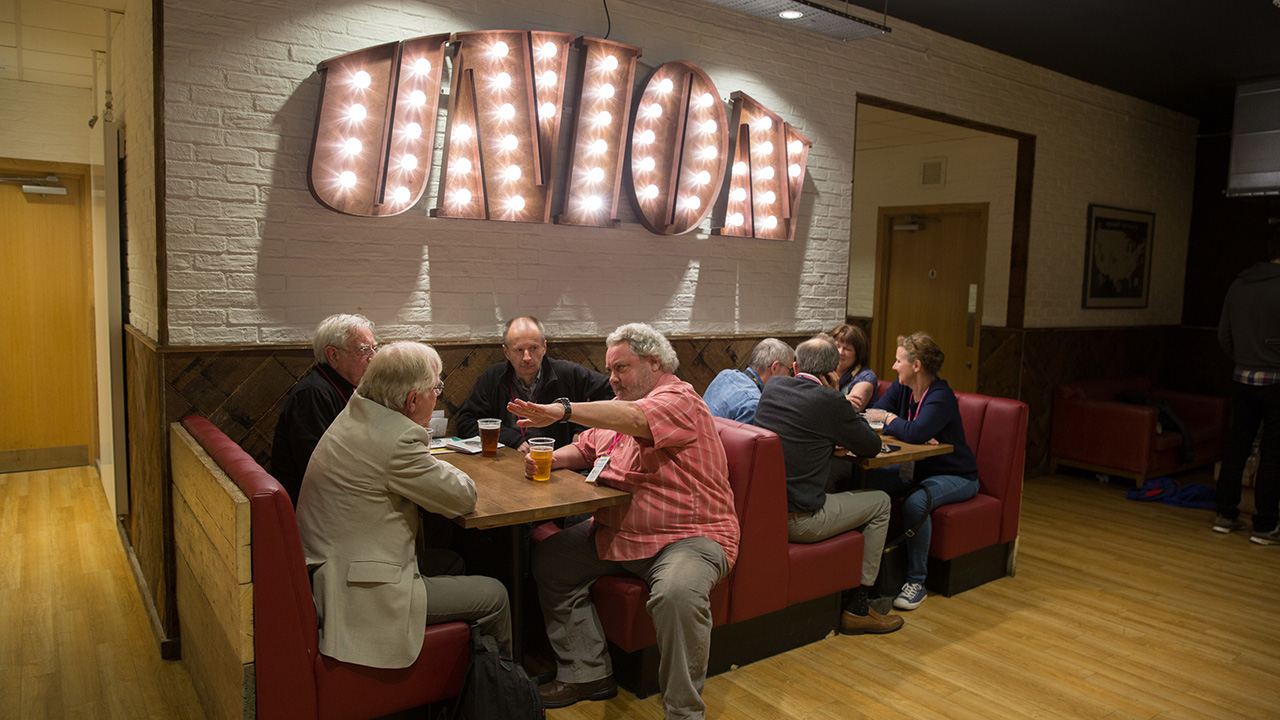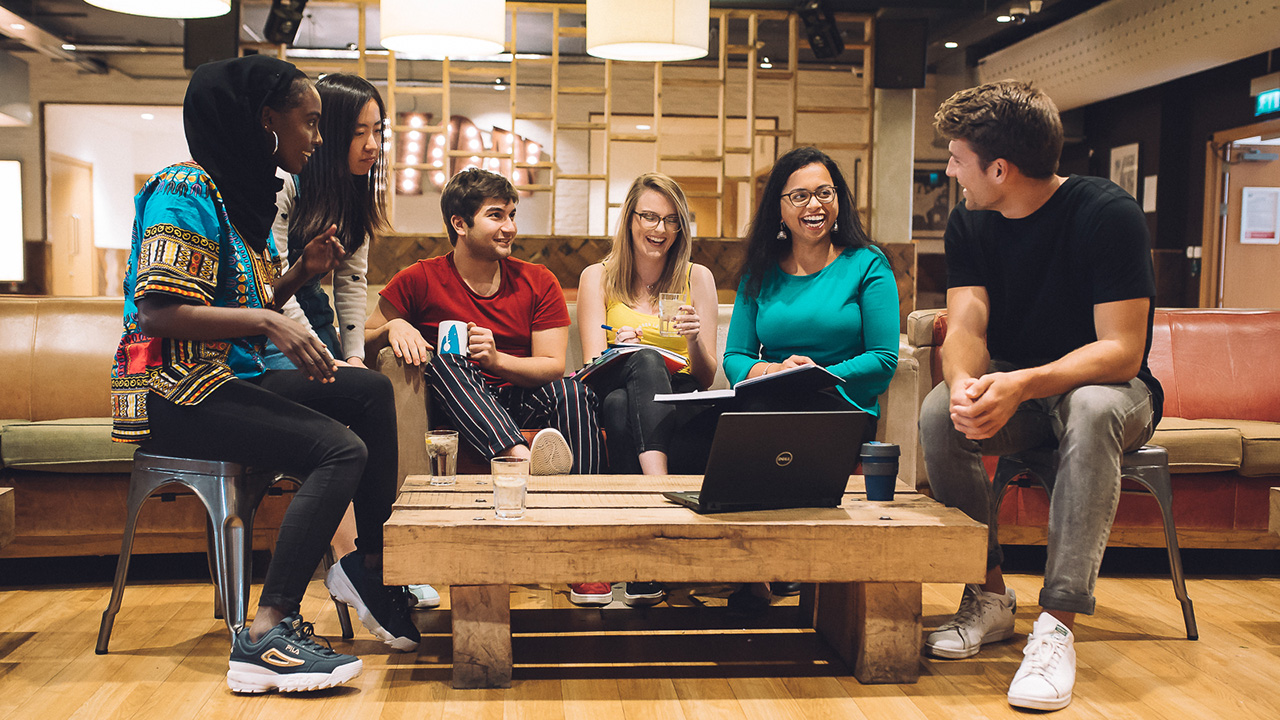1960s: Where it all began
It was 1965 and the Bristol College of Science and Technology was about to gain university status and find a new home in neighbouring Bath. John Murdoch, the Students’ Union president, found himself at the centre of the planning and negotiations for this major milestone. “I remember swimming in the Roman Baths with the Mayor when we began developing links with the city!” he laughs. “The main issue was what the University should be called, and I represented the students’ views to the college leaders, arguing that it should be the University of Bath. But we lost.”
It was named the Bath University of Technology, but John has nothing but fond memories. He has supported the Alumni Fund for 26 years: “My experience at Bath was the foundation for my career,” he says. “The course, placements and being president gave me such great training and shaped the rest of my life.”
1970s: The campus occupation

The students’ wisdom was seen eventually, however, and the name was changed to the University of Bath in 1971. This change kicked off a decade of rapid growth, as former president Richard Hall tells us: “It was a young institution that was open to trying out new ideas. I was part of that vanguard of exploration and experimentation.” Heading up the Students’ Union in ’74, Richard helped establish the first arts centre on campus – the Arts Barn (now The Edge). He was also responsible for setting up the student counselling service, Nightline, and even a driving school.
It wasn’t a completely smooth ride, however. “Inflation was rising to over 25% and the University proposed that rents should increase by 30%,” he says. It led to an occupation of the Vice- Chancellor’s office and the University temporarily closed. Richard called off the protest in order to move forward, but was met with a vote of no confidence.
“The Students’ Union was highly politicised,” he recalls. “There was a vocal contingent from the Socialist Workers Party and the International Marxist Group, supporting a far-left leadership of the National Union of Students.”
Richard successfully navigated the vote of no confidence, but later found himself in hot water. “On a summer’s day in ’75, we held a general meeting around the amphitheatre and there was an emergency motion that the president be thrown in the lake. Inevitably the motion was carried, and so was I.”
1980s: Thickshakes and Thatcher
A decade later, Bath was not the political hotbed it had been. “You wouldn’t have known that anyone at executive level had any political affiliation,” says 1985 president Martin Trainer. “We were on the fringes until it started to directly impact us.”
When Prime Minister Margaret Thatcher proposed cuts to student benefits, Bath rallied in opposition. “In those days you received a grant and you could claim support for rent and employment benefits during vacations,” says Martin. “By today’s standards, we were very well off (although it didn’t feel like it at the time) and the government was trying to change that. We took a fleet of minibuses to London to protest."
Meanwhile on campus, Martin pushed for the SU to take ownership of the bars and catering facilities – something for which many presidents have campaigned. “We didn’t have the commercial power that the SU has today, and one of our great victories was to get a thickshake machine installed in Norwood Refectory!” he laughs.
1990: The battle for the bar

The Nineties saw a period of transition, according to 1990 president Chris Green: “We were developing the travel outlet, the shop, and we were making a bid to take over the bars.
“I learnt a lot during that year,” he continues. “In my handover notes I wrote that the only person who understands what it’s like to be president is another president, because of the stresses and strains you’re under.” For Chris this included a fire that left Wessex House out of action for months, with hundreds of students needing re-housing.
Vanessa Ruparel (née Workman) credits her experience as president with landing her first job. She took over from Chris in ’91, becoming one of the first female SU presidents at Bath. “I opened a few eyes at council meetings,” she recalls, “but I was fortunate that the vice president and sports officer were also female, which was fantastic.”
The team upped the stakes in the bid to get the bar under SU control. “We boycotted the busiest night, Sunday, and sold raffle tickets in return for alcohol and a film in the TV lounge,” says Vanessa. “Things really changed when the new VC came in a year later and the SU was finally granted ownership of the bars.”
2000s: A new Union rises

Developing the social spaces was at the heart of Alex Nicholson-Evans’ tenure. After successfully lobbying for votes on the Parade (“My team decided that tie-dye was ‘the thing’ – the photos still come back to haunt me on Facebook!”), Alex became president in 2008.
It was the year the SU lost the ‘pound-a-pint’ offer but got the greenlight for renovations to begin. “Every student survey said they needed more space,” she says, “so we had an architect draw the plans and began our campaign. In the end we had over 3,000 student voices saying, ‘This is what we want and need’, and the Vice-Chancellor said yes. Now the student experience is all the richer for it.” A bigger, better Student Centre opened in 2010, which was designed by 2005 architecture alumnus Andy Battle and made possible thanks to £100,000 from the Alumni Fund.
Alex would recommend the role to anyone, saying: “Learning how to represent different people’s voices in a coherent way and finding that balance between being firm without overstepping the line has set me up well for life.”
Looking to the future

Outgoing president Eve Alcock agrees: “Realising that you can genuinely make change by mobilising voices is really empowering. And that feeling when it results in a win; for example, with the buses – hundreds of students made their voice heard and we managed to get a private company to change their routes back to ones that suited students.”
As president, Eve helped to recruit the current Vice-Chancellor and the Chair of Council, as well as implement governance reform. Now she ends her two-year term at a key point in the University’s history, too. “Nothing prepares you for coordinating an organisational and representative response to a global pandemic,” she says. “The SU is a charity, which means all the officers are trustees, and I also sit on the University governing body. So, I’m 24 years old and hold legal and financial responsibility for two multi-million-pound organisations during coronavirus and I sometimes think, how has this happened?”
While she prepares to hand over to 2019 activities officer and incoming president Francesco Masala, what does Eve feel are the issues that will continue to be on the priority list? “In the past couple of years we’ve had much more diverse sabb teams than ever,” she says, “and I feel confident that the work we’ve done around widening participation and prioritising equality and diversity within the institution will continue to grow and flourish. That’s what you really want to achieve – to make changes that will outlast you – because it’s never about you, it’s about what you leave behind.”
Much has changed at Claverton Down over the decades but while some of the issues come up time and time again, new president Francesco is under no illusions that this coming year will present an entirely new set of challenges. “Every year is unique and challenging in its own way, but I don’t think anything will compare to the year that the officer team is about to start,” he admits. “Covid-19 has reaffirmed the importance of the SU and its activities in providing the rich, all-encompassing experience our students deserve.”